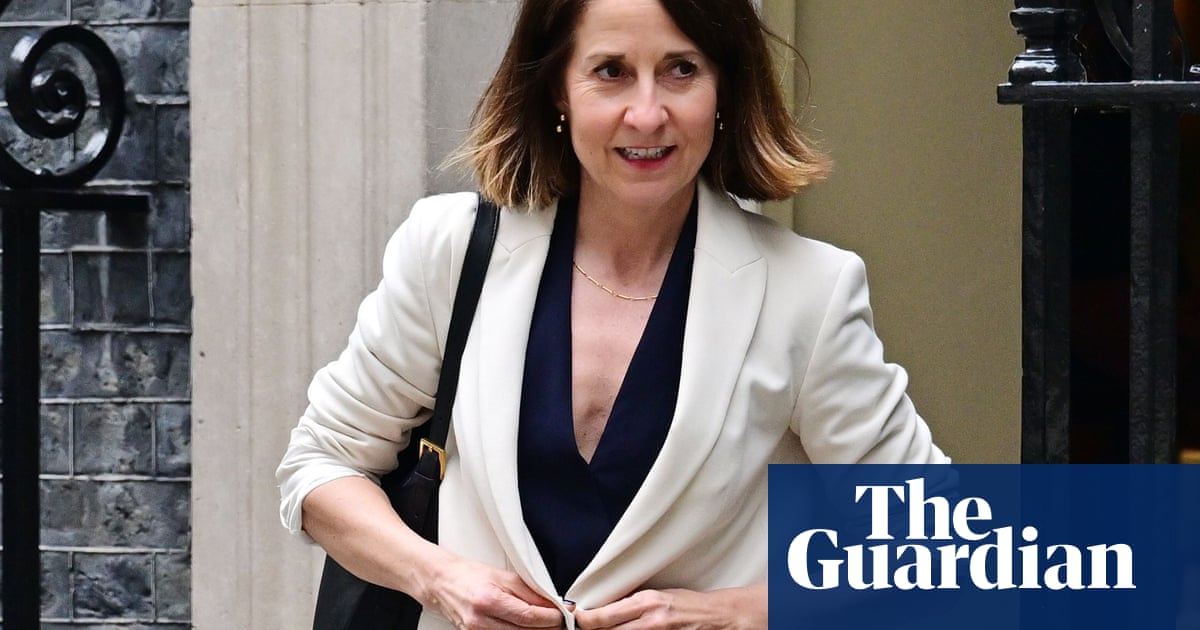Labour MPs have launched a significant rebellion against the government’s benefit cuts with an amendment designed to kill its welfare bill, spearheaded by senior select committee chairs.
The amendment – which sources said could be signed by up to 100 MPs – declines to pass the government’s welfare changes and calls for a pause, including for further consultation and for support to be in place before any further cuts are made.
The Guardian understands the amendment has been led by the Treasury select committee chair, Meg Hillier, and a number of other committee chairs. It has also been signed by former cabinet minister Louise Haigh and Vicky Foxcroft, who quit as a Labour whip last week.
They claim the amendment, to be published on Tuesday, is not intended to wreck the welfare bill, but with many Labour MPs uneasy about the government’s plans, that could be the eventual outcome.
“We all want the Labour government to succeed in getting people back into work and supporting those who can’t. We don’t want to defeat the government but we want the government to think again,” Hillier told the Guardian.
“We are being asked to vote before consultation with disabled people and before impact assessments.”
Ministers have argued that dropping, or even watering down, the welfare plans could leave a multi-billion pound black hole in Rachel Reeves’s attempts to balance the country’s books.
But Hillier said: “We recognise that the financial situation is difficult. As the chancellor says governing is about choices. We don’t disagree that there is a need to reform welfare but it’s hard to deliver the proposed improvements in the proposed timescale. And disabled people must be protected.”
Dozens of backbench MPs have signed the amendment, with predictions it could reach as high as 100 signatures. Government whips have already beensteeling themselves for a rebellionon the welfare bill when it is first voted on next week.
A senior MP said: “The government hasn’t listened to private concerns so now will have to address these very public ones.”
The aim would be to pass a so-called “reasoned amendment”, which halts the passage of a bill. It means the bill would not pass its second reading, saying that provisions “have not been subject to a formal consultation with disabled people, or co-produced with them, or their carers”.
It also says the bill should not pass until the Office for Budget Responsibility can publish its analysis of the employment impact of the changes this autumn. It adds that most of the additional employment support funding will not be in place until the end of the decade.
It notes the government’s own impact assessment estimates that 250,000 people will be pushed into poverty as a result of the provisions, including 50,000 children. It calls for an assessment of the impact of the changes on health or care needs and for the conclusion of other reviews.END
The amendment would need to be selected by the speaker, Lindsay Hoyle, and gain the support of opposition parties to pass and there is no guarantee of either. But the symbolism of so many MPs signing the amendment would make taking the bill forward extremely problematic for Keir Starmer.
The move comes after a meeting of MPs addressed by the work and pensions secretary, Liz Kendall, who told the private meeting there was “no route to social justice based on greater benefit spending alone”.
She said the cuts were about “ensuring the welfare state survives” and that the government would always seek to protect those with the greatest need.
Some frontbenchers are believed to be considering their positions ahead of next Tuesday’s vote on cuts to personal independence payments (Pips) and changes to the health-related element of universal credit.
Sign up toFirst Edition
Our morning email breaks down the key stories of the day, telling you what’s happening and why it matters
after newsletter promotion
Cabinet ministers, including the business secretary, Jonathan Reynolds, and the culture secretary, Lisa Nandy, have been making the public case to angry MPs to back the changes. At least 170 MPs have expressed concerns about the bill in public interventions and private letters to party whips.
Foxcroft, a former shadow disability minister,quit her post last weekas a government whip, saying she could not support the cuts which could affect more than a million people.
The changes, which are at the centre of a £4.8bn welfare cuts package, will mean even people who are unable to wash half their body or cook a meal for themselves will be denied the payments if they have no other impairments.
Reeves denied earlier on Monday that the government would go any further to appease MPs, either by making tweaks to the changes or by delaying the vote. “There will be no U-turn. We’re voting on it next week,” she said.
Speaking to MPs at the parliamentary Labour party meeting, Kendall urged them to support the government and emphasised the extra support it would be establishing.
“The path to fairer society – one where everyone thrives, where people who can work get the support they need, and where we protect those who cannot – that is the path we seek to build with our reforms,” she said. “Our plans are rooted in fairness, for those who need support and for taxpayers.
“They are about ensuring the welfare state survives, so there is always a safety net for those who need it. They’re about putting proper safeguards in place to protect the most vulnerable.
“But above all they are about our belief that everyone can fulfil their potential and live their hopes and dreams when – collectively – we provide them with real opportunities and support. This is the better future we seek to build for our constituents and our country.”
